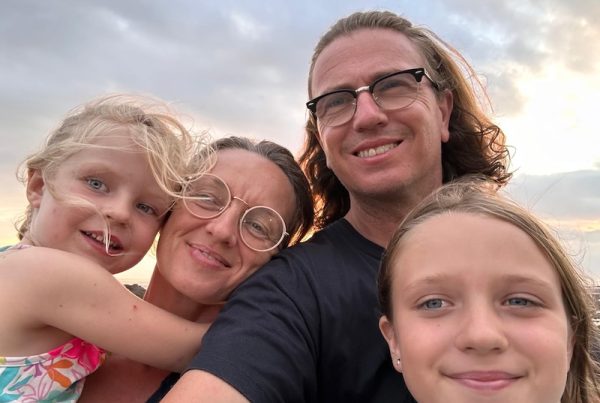In this interview, we sit down with an inspiring Alyson who made a bold decision to leave behind the bustling city life of Sydney, Australia, for the vibrant island of Bali. With a passion for helping others as a Speech Language Pathologist, Alyson shares her journey of transitioning to life in Bali and the opportunities that came with starting a business.
From navigating the intricacies of opening a speech therapy centre to offering advice for parents of children with special needs, this conversation sheds light on the realities and rewards of living in Bali. Join us as we dive into her experiences, insights, and reflections on what makes Bali both a beautiful and challenging place to call home.
Can you tell us a little bit about yourself? Where are you originally from?
I was born and raised in Melbourne, Australia, and spent 10 years living in Sydney before I moved to Bali. My family is of Malaysian Chinese background and therefore I frequently get mistaken for being Indonesian, which can be useful for getting discounts!
When did you first arrive in Bali and how long do you wish to live in Bali?
I arrived in August 2022 and am planning to stay here long term.
What motivated you to move to Bali, and how did you go about making the decision to do so?
It was a very spontaneous decision. After resigning from a senior role in Sydney, I took a holiday in Bali to reflect on my next steps. I quickly fell in love with the island’s slower pace, warm weather, and vibrant people, and I could easily see myself living there. Within a month I had sold everything and moved to Bali.
Where in Bali do you live and why?
I live in Kerobokan because it’s quite central to the exciting areas of Seminyak and Canggu but a bit quieter and more affordable.
How has living in Bali influenced your personal and professional life, and what opportunities have you found here?
Living in Bali has been great for my mental health, with less stress and hustle compared to big cities. I also have more time for the things I love, as many daily chores like cooking, cleaning, and laundry can be outsourced. Professionally, I’ve had the opportunity to work as a speech pathologist in a school, take on private clients and eventually start a business. This has allowed me to further develop my clinical skills, applying what I’ve learned to a new cultural context as well as develop entrepreneurial skills.

In October 2023, as a Speech Language Pathologist, you opened Bali Speech and Language Centre in Seminyak. Please tell us your experience with opening a small business in Bali and what your centre offers the community.
It was initially a daunting process legally, but turned out to be fairly smooth with the help of an agent. When BSLC started I was actually seeing clients from the comfort of my home so there were very few overheads, however this year I had the opportunity to renovate a separate therapy space with the help of an Australian interior designer. It was a really satisfying process seeing my vision come to life for a beautiful therapy room and the kids and families are loving it so far.
Bali Speech and Language Centre exists to develop confident communicators and consistently deliver high quality, specialist services that help individuals reach their full potential in communicating. Our aim is that families can come to our centre and receive speech and language therapy services equivalent to, if not better, than what they would receive in Australia or any other first world country.

What advice would you give parents considering a move to Bali when it comes to their children who have special needs (i.e. ADHD, Autism etc)
I would advise parents to do their research and speak to different schools to see what support they offer for children with additional needs, the qualifications of the teachers, whether they offer Individualised Educational Plans (IEPs) and an inclusive curriculum. I would also advise parents to research the availability of specialist services such as Speech Pathology, Occupational Therapy and Psychology if that is something their child is accessing back home for continuity of care.
Additionally, Bali’s relaxed lifestyle can be beneficial for children with ADHD or Autism, but it’s still important to maintain structure and routine, which many children with special needs thrive on. Balance the island’s laid-back pace with consistent daily routines tailored to your child’s needs.

What are some of the biggest challenges you’ve faced living in Bali to date?
I’ve had quite a few rounds of Bali belly so that has definitely not been pleasant. Bali is also a very transient island so developing longer term friendships can initially be a challenge, however I am blessed to have a found a great community.

What do you think are the biggest misconceptions about Bali, and how would you correct them?
People think that living in Bali is paradise, but the reality is that while it is beautiful and charming, there is also a lot of traffic, overcrowding and pollution. It is also still developing so sometimes there may be electricity outages, flash flooding in rainy season and general inefficiencies.
How would you compare the cost of living to what you used to have in Australia and the cities Sydney and Melbourne you used to live in?
It is definitely a lot lower in Bali as food is less than half the price and accommodation is more affordable, however I have found that over the past 2 years since moving here housing prices have already increased.

What would you say is the best thing about living in Bali?
The people and the weather. Bali tends to attract many interesting and adventurous people from all over the world and is a melting pot of cultures and creativity. It also nice not experiencing winter anymore.





